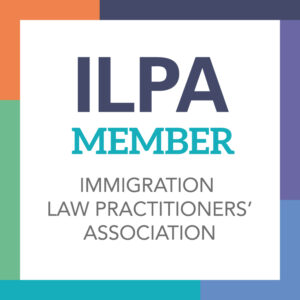Business Sponsor Licence Guidance for UK Employers

On 31st December 2020, freedom of movement between the United Kingdom and the European Union officially ended. This marked the introduction of the UK’s new points-based immigration system – a system designed to attract highly skilled workers, skilled workers, students, and specialist talent via new work and study routes, which became operational in January 2021.
If you are a UK-based business, particularly one operating in London, and looking to hire a non-EU or non-EEA migrant worker, you will need to apply for a sponsorship licence (previously known as a Tier 2 sponsor licence). Obtaining a business sponsorship licence will authorise your company to employ and retain non-EEA and non-EU migrants legally under the UK’s immigration rules.
The current sponsorship system forms the foundation of the points-based immigration framework. It is essential for hiring through the Skilled Worker Route, the Health and Care Visa, the Student Route, and other specialist visa routes. This system applies equally to both EU and non-EU citizens who require a visa to work, study, or settle in the UK.
Each visa route has specific requirements. However, for most work routes, employers must:
- Demonstrate they are a genuine and solvent business.
- Prove they have genuine roles available.
- Satisfy salary and skill level requirements where applicable.
Sponsors are also responsible for paying the necessary licence fee and complying with Home Office obligations designed to ensure all activities align with the public good.
Immigration Skills Charge and English Language Requirements
All businesses sponsoring non-UK migrant workers are required to pay the Immigration Skills Charge. In addition, applicants must meet English language requirements, which are determined according to the Common European Framework of Reference for Languages (CEFR).
Some routes provide flexibility. For example, skilled workers sponsored as doctors, dentists, or nurses can use assessments from their professional bodies as proof of English proficiency.
Switching Immigration Routes and Dependant Rights
Under the points-based system, specific skilled workers and postgraduate students can bring their dependants to the UK. Eligible migrants may also switch between certain immigration routes without leaving the UK. However, this flexibility does not apply to all routes – individuals on short-term visas, such as visitor or seasonal worker visas, cannot switch to work or study routes within the UK.
Importantly, switching does not mean reduced eligibility – applicants must still fully meet the qualifying criteria of the new route they intend to switch into.
How Does the Points-Based Visa System Work?
Anyone – including EU citizens – coming to the UK to work must meet specific requirements under the points-based system:
Mandatory Requirements (worth 50 points):
- A confirmed job offer from a licensed sponsor for a role at or above the minimum skill level.
- English language proficiency meeting the required standard.
Additional Requirements (to earn 20 extra points):
- Meeting the minimum salary threshold (generally £38,700 per year or the relevant “going rate”).
Alternatively, points may be obtained if the job is in a shortage occupation or if the applicant holds a relevant PhD.
Certain roles in healthcare and education have different salary thresholds.

Speak to Our Business Sponsorship Licence Solicitors in London
If you have any questions about applying for a business sponsorship licence or navigating the visa process, contact our specialist immigration solicitors today on 0203 761 3993 or use our online form to book a free initial consultation.
You will only be charged if you decide to instruct us and if we are able to assist you.





